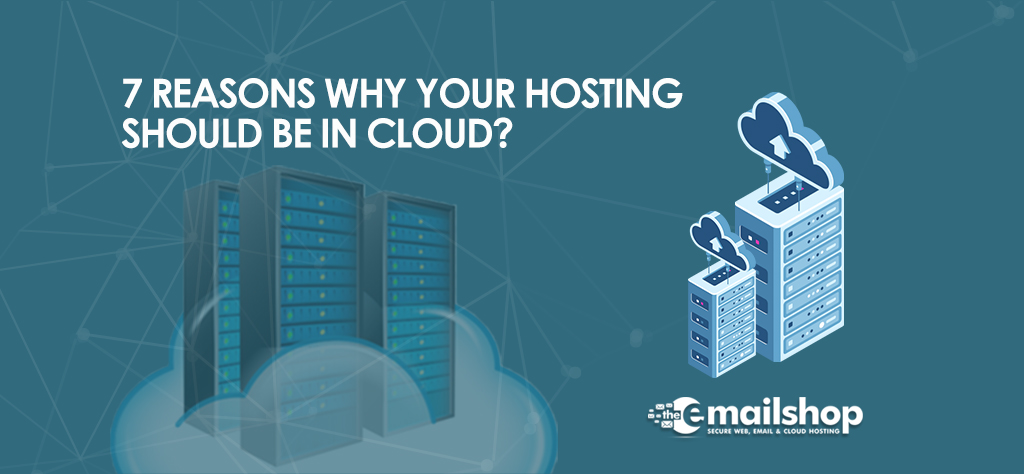Cloud hosting is almost like a dream come true since it is very simple to grow to virtually endless levels, it is surprisingly reliable, and it is really easy on the wallet. It is the most effective method for maximizing hosting performance while minimizing costs. However, increased speed is just one of several benefits offered by the best cloud hosting. However, increased speed is just one of several benefits offered by cloud hosting.
The two most common forms of web hosting are known as “cloud hosting” and “shared hosting”. Cloud hosting is now preferred over shared hosting for a variety of reasons, some of which will be covered in further detail in the next sections of this article.
When you use shared hosting, the resources of a single physical server are split between your apps and those of other customers. A few examples of them include: random access memory (RAM), central processing unit (CPU), bandwidth, and software like MySQL or Apache web server that is installed. This solution is perfect for personal websites like blogs and smaller enterprises since it is inexpensive and simple to put into action. Shared hosting has problems with scalability and many other constraints that make it unsuitable for mission-critical websites and web applications. These issues include having loud neighbors; being slow; having limited resources, having bad customer service; and not having access to the root.
The cloud-computing infrastructure provided by Vultr gives you access to a robust and user-friendly platform for executing contemporary web apps, which helps you overcome the problems outlined above. This article lists 7 reasons that will assist you in choosing any one option from cloud hosting and various other sorts of hosting.
Deployments with High Reliability and Very Low Latency
Dependability is the name of the game when it comes to the programs that run on the web. Customers are not patient when dealing with slow-loading websites. Therefore, even a moment’s delay in your website’s loading time might result in lost revenue. Consumers only get the impression that they are not at the top of your list of priorities. Slow websites are seen as having inadequate product innovation and customer service, which is another common perception among online users. Websites that load too slowly lead the majority of people to give up on their shopping carts in the middle of their session. When using a hosting environment, you run the risk of losing revenue, and the bulk of your dissatisfied clients may never come back.
When you choose a cloud-based service, the activities of other customers won’t have an impact on the speed at which your website operates since you have dedicated resources linked to your account. In addition, Vultr’s cloud computing infrastructure offers 22 locations across the globe, which enables you to install your server in a region that is geographically near to your client base in order to achieve the lowest possible latency. Vultr provides the most reliable platform for your modern applications by constructing its infrastructure entirely of Intel hardware and solid-state drives.
Capacity for Scale and Resistance to Failure
Scalability is built into the Vultr cloud architecture by default. For example, if you are just starting off, you may set up a new virtual private server in the cloud (also known as a cloud computing instance) that has a single CPU, a 25GB solid-state drive, and 1GB of RAM. Then, as the number of people visiting your website increases, you may scale up by selecting an instance with more powerful specifications (for example, 2CPU, 80GB SSD, and 4GB RAM). This method is known as “vertical scaling.”
In order to accommodate the ever-increasing number of users, you may choose to set up additional servers or instances rather than upgrade to a bigger instance. Then, as you grow horizontally, you can make use of the load balancer as a service that Vultr offers to ensure that your clients are distributed evenly throughout the pool of your backend servers. This solution keeps an eye on the backend servers and, in a cyclical fashion, directs traffic only to those that are in good condition.
The Vultr load balancer assures that your application will not experience any downtime even if any of your backend servers become unavailable. This configuration is particularly helpful in the event that you need to do maintenance on certain servers but do not want to totally terminate the operation of your application. Replicating services (like databases, for example) over many backend servers is necessary in order to achieve horizontal scalability.
Ability to adapt and be self-sufficient
When using a shared hosting environment, you are restricted to the vendor’s preferred operating system, which might vary based on the apps that they wish to run on the server. However, when you install a server using Vultr, you have the flexibility to choose an operating system from a wide range of options, including Ubuntu, Debian, CentOS, Fedora, Windows, FreeBSD, Arch Linux, Rocky Linux, and many more.
However, when you install a server using Vultr, you have the flexibility to choose an operating system from a wide range of options, including Ubuntu, Debian, CentOS, Fedora, Windows, FreeBSD, Arch Linux, Rocky Linux, and many more.
In addition, cloud computing provides you with root access, which enables you to install specialized software according to the requirements of your particular application’s usage scenario. In order to put this into perspective, the majority of providers of shared hosting install MySQL as the single database server. The issue occurs when you have a unique circumstance that calls for you to make use of a contemporary database in order for your program to operate effectively. Without root access, not only are you unable to install the custom database servers, but the vendor will also not assist you in this endeavor.
The following is a list of some of the greatest open-source databases that you are able to install on the cloud computing instances provided by Vultr:
- MySQL Database Server
- InfluxDB database server
- InfluxDB and Redis servers
Safety and Regulatory Compliance
To guarantee that all of the products adhere to contemporary regulations, such as the General Data Protection Regulation, the team has made certain that each product has been subjected to a comprehensive procedural and legal assessment (GDPR).
In addition, cloud hosting offers an extra layer of defense, which guarantees that your application will continue to function normally even if it is the target of an attack. For example, the native DDoS mitigation solution that cloud hosting provides may terminate DDoS assaults in a matter of minutes. It includes real-time monitoring and statistics, in addition to adding a mitigation capacity of 10Gbps per instance. Additionally, cloud hosting offers a variety of guidelines that may be used to install the Let’s Encrypt certificate on the operating system of your choice.
You Might Also Like to Read: Best cloud server hosting services in 2022
A Market That Is Concentrated
Cloud hosting includes both the option to install applications manually as well as a central marketplace that gives you the ability to set up popular applications, operating systems, and software stacks with just the click of a button. The hub makes it possible for you to deploy your preferred applications with a minimum of effort while your instances are being spun up. The LAMP/LEMP stack, WordPress, cPanel, Docker, Joomla, Drupal and own Cloud are examples of popular applications that may be installed.
Due to the fact that independent software suppliers are permitted to distribute their applications, the list of programmes is updated every day. If you are a software supplier, this is an excellent chance for you to reach out to the more than 1.3 million cloud hosting users who are located in countries all over the globe and sell your services to them. Each contribution is put through quality assurance (QA) procedures in order to guarantee that consumers get the highest possible level of service.
Support for Cloud Hosted Applications Around the Clock
Cloud hosting provides its clients with customer support service that is available around the clock. Because your application is hosted in the cloud, you may, on occasion, want support. Within a matter of minutes, an email response to a support request is sent out with comprehensive information on how to fix the problems.
Methods That Are Within Your Budget
Even with all of these benefits, implementing a cloud infrastructure would not be possible unless it could be done at a cost that is acceptable. Cloud hosting offers cloud-computing services and plans that are both reasonably priced and suitable for any budget, with a diverse range of server configurations to accommodate individual requirements.
For Discount and Offers, Visit our Official Twitter Page









